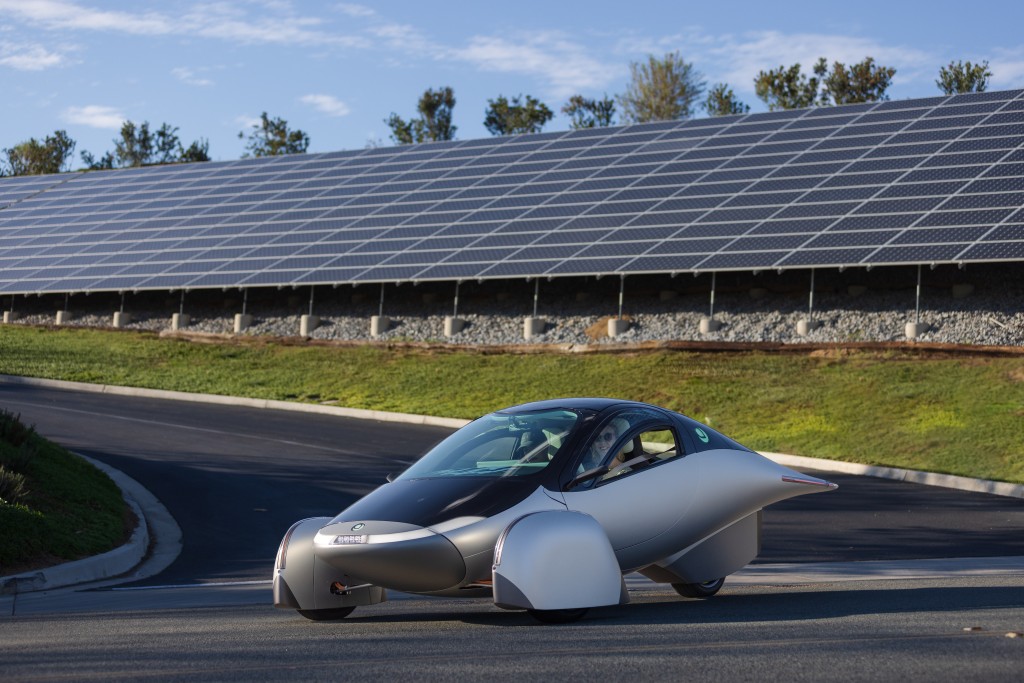Green Mobility: Where will solar technology take us?
Ralf Elias
Chief Product Officer & Executive Vice President
The car that you take, every week or so, to the gas station is just one of around 1.4billion found navigating roads around the world. That number alone represents a uniquely difficult challenge for the energy transition. Personal cars go hand in hand with our modern way of life. But their success has depended on relatively cheap and freely available fossil-fuels, fuels which an escalating energy crisis and an accelerating energy transition have shown belong to the past. If fossil-powered cars are the past, then electric vehicles (EVs) and solar electric vehicles (sEVs) are the future. But as of mid-2022, BloombergNEF estimates that there are just under 20million passenger EVs.
There is still much work to be done if this 1.5 per cent market share is to grow to dominate the entire market, enabling the world to reach ambitious net zero emissions targets by 2050. At Maxeon, we believe that this growth is not only accelerated by solar, but that it simply cannot happen without solar. Maxeon technology is supporting the shift to real green mobility by empowering EV users to shift from carbon-based electricity sources to 100 per cent renewable energy, ultimately helping to compensate for the carbon emissions generated when cars are made.
Driving change beyond the panel
At Maxeon, we’ve made no secret of the fact that we want to take our work in manufacturing premium solar cells beyond just the production of solar panels. We have moved into developing innovative solutions which enable the easy adoption of solar energy and in turn, making it as easy and familiar to use as traditional energy sources. To this end, we’ve acknowledged the fact that global adoption of EVs is somewhat limited by the availability of smart charging points, particularly in the private settings of our own homes. By offering consumers solar panels that intelligently connect with EV chargers, individuals can maximise the benefit of electric vehicles when it comes to reducing a household’s carbon footprint and alleviating dependence on costly, polluting fossil fuels.
We believe Maxeon’s SunPower One, a holistic residential energy management system, could be the solution to green mobility by enabling homeowners to truly understand in real time the benefits of renewable energy. Many energy solutions on the market show only the performance of a solar system, but SunPower One reimagines the energy experience. The integrated system directs connected devices within the home to use surplus energy being produced by Maxeon solar panels and importantly makes recommendations on the best time for maximum energy efficiency to run appliances around the house. One such appliance could be an EV smart charger – an intelligent solar system would direct a smart charger to pull energy during periods of sunshine when an EV is not being used directly from the panels.
Maxeon’s recent partnership with Star Charge, a leading global EV charging solution provider, is just the latest in a series of innovative developments to the SunPower One ecosystem, expanding our residential energy solution. We’ve combined Star Charge’s expertise in the research, development, and manufacturing of electric vehicle charging technology with our clean energy technology and next-generation consumer experience to ensure we deliver on our promise of Powering Positive Change.

The future of mobility
One of our partnerships this year was with Solar Electric Vehicle (sEV) start-up Aptera Motors. This partnership, intended to bring a next phase of solar innovation to market, sees us furnish Aptera electric vehicles with Maxeon solar cells. With almost 700W of Maxeon’s integrated solar cells, an Aptera solar electric vehicle (an sEV) can drive up to 40 miles a day, powered by the sun. This partnership takes us well into the future of electric mobility and represents our intention to continue to be an industry leader. In this way, it also asks an exciting and new question for the industry – when will the electric mobility transition become the solar mobility transition?
Ultimately, solar energy not only paves the way towards a world where mobility is entirely untethered from dependency on fossil fuels but also a world where passenger cars are able to compensate for the emissions produced during their manufacturing. Thanks to Maxeon, EVs can have an accelerated carbon payback period, speeding up the positive impact that the transition to green mobility will have on the environment.
While increasing the uptake of EVs in the early years of electrified mobility meant supportive subsidies that encouraged people to purchase this then-nascent technology, in the long term more is needed. Realising EVs and sEVs full potential to contribute to cuts in vehicle emissions requires the complete integration into power systems, decarbonisation of electricity generation, deployment of recharging infrastructure and manufacturing of sustainable batteries. It’s a transition we, at Maxeon, want to be a key enabler of across the world.

